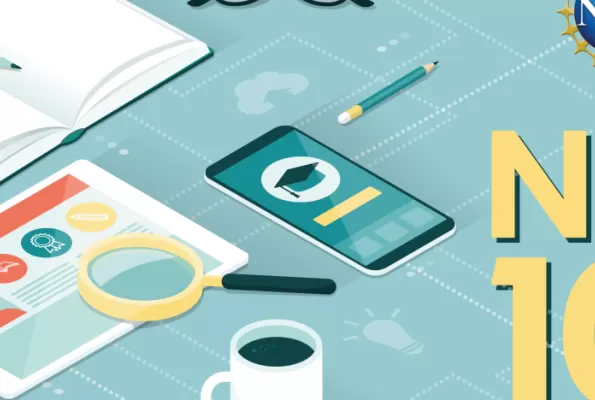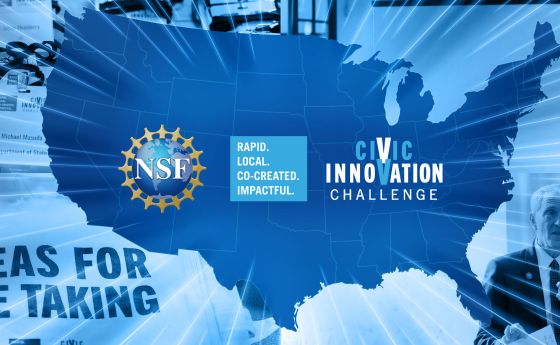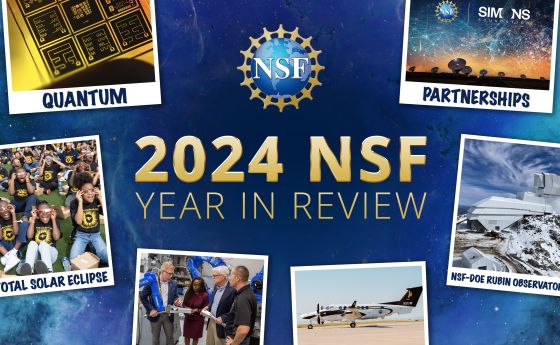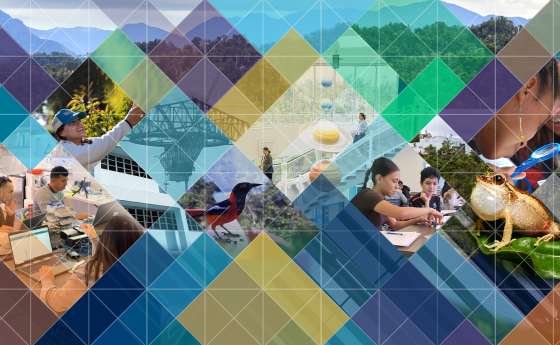
NSF 101: The Mentoring plan
The postdoctoral mentoring plan has been an NSF requirement since 2009, recognizing the important role that mentorship plays in the postdoctoral experience and their future career paths. As of 2024, the mentoring plan has been expanded to include postdoctoral researchers and graduate students. While you will find many templates online, NSF does not endorse a prescriptive format and encourages researchers to lead the way in creating unique strategies for supporting their mentees.
According to the NSF Proposal and Award Policies and Procedures Guide: "Examples of mentoring activities include, but are not limited to, career counseling; training in preparation of grant proposals, publications and presentations; guidance on ways to improve teaching and mentoring skills; guidance on how to effectively collaborate with researchers from diverse backgrounds and disciplinary areas; and training in responsible professional practices."
At the heart of mentoring are personal relationships that are unique to every mentor and mentee. In that spirit, consider the questions below as you create a mentoring plan to build the foundation for a fruitful working relationship between you and your mentee.
Set and communicate your expectations
- What are your expectations for your mentee, and how will you communicate these expectations for the mentoring relationship?
- How will you clearly communicate your mentoring philosophy, working environment and culture, policies and other important considerations to a mentee working with you and your team?
Convey your responsibilities as a mentor
- What can a mentee expect from you throughout the mentoring relationship?
- Can they expect timely feedback on their work, regularly scheduled meetings, assistance in making connections/networking or notifications about relevant opportunities?
Tailor your plan
- Can you personalize your mentoring plan if/when a mentee has been chosen?
- How will your plan be responsive to your mentee's needs, interests and goals?
- How does the plan recognize that there are multiple pathways to success and ensure the plan is tailored to what success would look like for the mentee?
Promote a supportive work environment
- What steps can you take to promote a work culture where mentees feel valued and supported and to foster a sense of belonging as an authentic member of the team?
- How will you create an environment where mentees feel comfortable taking calculated risks?
- How will mentees be empowered to learn from mistakes?
- How will conflict be managed and communicated, particularly among trainees with different personal and cultural identities?
- How will the contributions of all team members be recognized?
- How are the research teams' values and priorities decided upon and conveyed?
Strengthen a broader ecosystem of support
- How will you identify opportunities for your mentee that lie outside of your strengths as an individual mentor?
- Can you form mentoring teams that can advise on different disciplines, career or life paths, connect postdocs/graduate students excluded due to their ethnicity or race with mentors that have similar identities, further develop your knowledge and skills as a mentor?
Assess progress
- How will progress towards goals and mentorship quality be evaluated? Individual development plans (IDP) can provide one route to goal setting that work well in some environments. When an NSF project provides substantial support to graduate students and postdocs, each individual is now required to have an IDP. Even where IDPs are not required, you and your mentee may find similar goal-setting activities that are well-suited to your goals, values and working styles. Online, interactive IDP resources can be found at myIDP.sciencecareers.org, chemidp.org and imaginephd.org.
- How will you plan to co-create, revisit and revise your mentoring plan over time with your mentee?
Intentionality in designing a mentoring plan can provide a foundation for the success of postdoctoral and graduate student researchers who are vital to the scientific enterprise. Mentoring is key in enabling postdocs and graduate students to bring forth their innovative ideas and reach their full potential while overcoming numerous barriers, particularly for those who have been excluded due to their ethnicity or race. Mentees may also be facing additional common challenges, such as separation from support systems, immigration challenges, caregiver responsibilities or financial difficulties.
Mentoring is a powerful opportunity to broaden your impact on the scientific community. If you are interested in learning more about strategies to improve mentoring, you can find the latest NSF-funded research on the topic through the NSF award search!
About the Authors
Stephanie Gage
AAAS Science and Technology Policy Fellow
Stephanie Gage is an interdisciplinary neurobiologist working in science and technology policy. She earned a PhD in Neuroscience from the University of Arizona studying olfactory-guided behavior and applied this expertise at the USDA – ARS and at the Georgia Institute of Technology. As a AAAS Science and Technology Policy Fellow, Stephanie now works at the National Science Foundation in the Information and Intelligent Systems Division in the CISE directorate, and the Integrative Organismal Systems Division in the BIO directorate.
Julia Gerson
AAAS Science and Technology Policy Fellow
After completing her Ph.D. in Neuroscience, Julia completed a post-doctoral fellowship at the University of Michigan. Afterward, she joined the National Science Foundation as an American Association for the Advancement of Science Science and Technology Policy Fellow in the Advancing Informal STEM Learning Program within the Division for Research on Learning in Formal and Informal Settings in the Directorate for STEM Education.
Xoco Shinbrot
AAAS Science and Technology Policy Fellow
Xoco Shinbrot is a conservation social scientist by training, now working in national and international policy spaces. She earned a PhD in Ecology investigating how individuals and communities adapt to climate change, how to improve participation in public science, and the socio-economic impact of forest carbon offset programs. Following her post-doc at Cornell University, she now works in the Arctic Sciences Section in the Office of Polar Programs at the National Science Foundation as a Science and Technology Policy Fellow.



